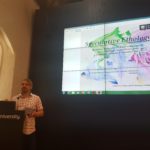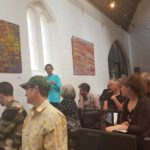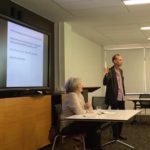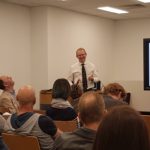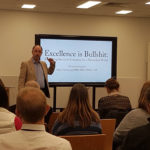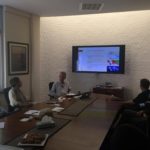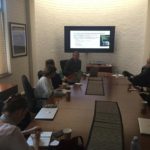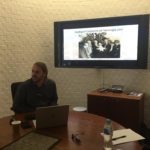Events
The Centre for Culture and Technology organises numerous events throughout the year. Our members also speak at events nationally and internationally throughout the year.
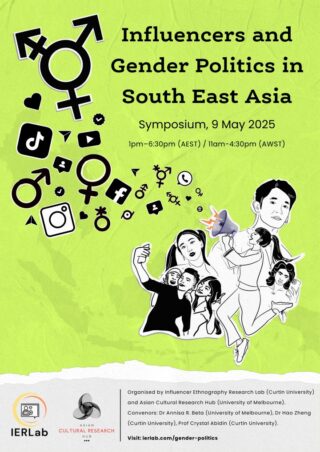
IERLab Symposium: Influencers and Gender Politics in South East Asia
Friday, 9 May 2025, 11am – 4.30pm AWST (GMT+8)
Free online event on Zoom. Please register your attendance here: https://zoom.us/webinar/register/WN_MhzH0CvIT3G0SHDeL00HPg
The Influencer Ethnography Research Lab (IERLab) at Curtin University and the Asian Cultural Research Hub (ACRH) at the University of Melbourne invite you to join “Influencers and Gender Politics in South East Asia,” a free online symposium on Friday, 9 May 2025.
This event examines how influencers inform and shape conversations around identity and gender across South East Asia and its global communities. Addressing topics such as activism, authenticity, morality and religion, and the intersections of entrepreneurship and capitalism, the presentations will explore how influencers perpetuate, challenge, or enrich the discourse on gender norms.
Featuring plenary presentations by Associate Professor Aim Sinpeng (University of Sydney), Dr George Radics (National University of Singapore), and Dr Monika Winarnita (University of Melbourne), the symposium brings together transnational and interdisciplinary perspectives to frame and understand influencers and gender politics within the digital, social, and cultural contexts of South East Asia.
More information about this event, including the programme and presenter biographies, can be found at https://ierlab.com/gender-politics/
Select portions of the event will be recorded and made available for later viewing at https://ierlab.com/
Please feel free to share this information with your networks. Any questions about the event can be sent to contact@ierlab.com
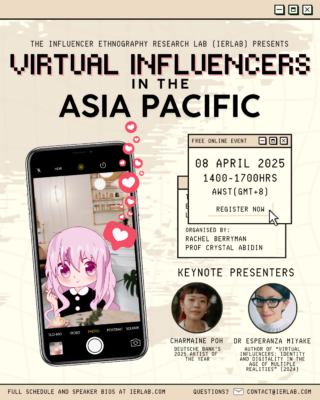
Virtual Influencers in the Asia Pacific
Tuesday 8 April 2025, 14.00-17.00 hrs AWST (GMT+8)
Online Event | Register Now: https://zoom.us/webinar/register/WN_5hFDRP43RbuQWXLWou4B8A
The Influencer Ethnography Research Lab (IERLab) at Curtin University is pleased to present Virtual Influencers in the Asia Pacific, a free online symposium exploring the impact, iterations, and industries of virtual influencers in the Asia Pacific region. Spanning several local incarnations of the virtual—including virtual influencers, virtual YouTubers (vTubers), and virtual idols—the papers in this event attest to the vibrancy of the Asia Pacific region as a site for virtual encounters and experiences.
With keynote presentations by multidisciplinary artist Charmaine Poh and media scholar Esperanza Miyake, author of Virtual Influencers: Identity and Digitality in the Age of Multiple Realities (2024, Routledge), this symposium brings together international speakers and cross-disciplinary perspectives to ground ideas of the virtual in specific geocultural, industrial, and political contexts.
More information about this event, including the programme and presenter biographies, can be found at https://ierlab.com/virtual-influencers/
Select portions of the event will be recorded and made available for later viewing at https://ierlab.com/
Please feel free to share this information with your networks. Any questions about the event can be sent to contact@ierlab.com
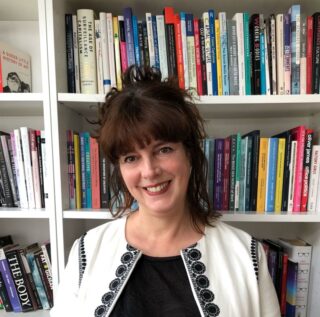
Workshop discussion with Professor Rosalind Gill
Thursday, 30 January 2025, B501.117. Please RSVP your attendance to genderresearchnetwork@curtin.edu.au
To coincide with Prof. Gill’s visit to Perth, we invite HDR students, ECRs, and colleagues to join us for an afternoon discussion of research data analysis practices and approaches. We invite participants to consider the following questions, and come ready to discuss with us your research, your analytical approach, and feminism/s.
Questions to consider:
- What does it mean to do ‘feminist’ data analysis?
- What does it mean to do ‘intersectional’ data analysis?
- How do we analyse research data in ways that alight with our values?
- How do we analyse research data in ways that align with, or reflect on, our own embodiment and positionality?
Rosalind Gill is a Professor of Inequalities in Media, Culture and Creative Industries at Goldsmiths, University of London, and is the author of several books including Gender and the Media; Aesthetic Labour: Beauty in Politics in Neoliberalism (edited, with Christina Scharff and Anna Elias); Mediated Intimacy: Sex advice in Media Culture (with Meg-John Barker and Laura Harvey); Confidence Culture (with Shani Orgad) and most recently, Perfect: Felling Judged on Social Media.
This workshop is being hosted by the Centre for Culture and Technology and Gender Research Network.
10th Digital Intimacies Conference (DIX) – attend in-person or online
As part of the Digital Intimacies Centre for Culture and Technology (CCAT) program stream, CCAT is proud to be co-sponsoring the tenth Digital Intimacies conference (DIX) with Monash University, December 4, 5 & 6 – Monash University, Caulfield campus + Livestream.
The Digital Intimacies symposia have for 10 years now been a place for sharing research on all the ways intimate lives are mediated digitally. From public grief and trauma gone viral on YouTube and TikTok, to hook-up and dating apps like Grindr and Tinder, to daily documentations on Facebook of meals, coffees, dreams, births, deaths, new relationships, breakups, and much more, intimate lives are being played out, recorded, commodified, and constituted through social media. This year we note 10 provocations around “X”… for details and program follow this link to Tumblr digital intimacies.
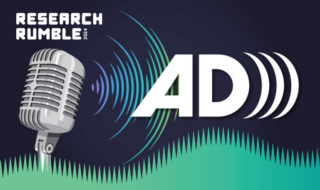
2024 Audio Description Symposium
Invitation to attend
The Centre for Culture and Technology (CCAT) would like to invite you to attend the 2024 Audio Description Symposium. This symposium brings together audio describers, academics, advocates, and members of the broader ‘AD community’ to discuss the policies and standards for AD in Australia, with an emphasis on how they have evolved, what international contexts have informed this and what the future of AD may look like.
We’ll be joined by Polly Goodwin, Frances Mathey, Dr Karen Seeley, and many more…
Lunch will be provided.
If you can’t make it in person, you can join us online. Please note a link to stream the event will be sent to you via email closer to the date.
The symposium will be held from 9am to 2pm on Friday 18 October at Curtin University, The Lantern, TL Robertson Library, B105.701.
Registration is essential: Please register your online or in-person attendance here.
This event is presented in conjunction with the Research Office at Curtin as part of Research Rumble 2024.
Research Rumble is a year-long program of events that invites you to discover how Curtin researchers are helping to solve the world’s next big challenges.

IERLab Masterclass – Computational Approach to Researching Visual Social Media with Dr Jing Zeng
Influencer Ethnography Research Lab (IERLab) at Curtin University is thrilled to host an in-person masterclass on 03 July 2024 (9am-12pm). In this masterclass, world-leading media scholar Dr Jing Zeng from the University of Zurich will present an introductory class on “Computational Approach to Researching Visual Social Media”.
Computational Approach to Researching Visual Social Media: An Introduction
Computational methods are becoming increasingly relevant in visual social media research, offering powerful tools to collect and analyse multimodal data. This masterclass provides an introduction for researchers interested in exploring how computational tools can be used to study visual content on social media platforms. A variety of tools used to analyse multimodal data from social media, (e.g. Instagram pots, TikTok videos) will be covered. The talk will explore key questions such, how machines “see” images, how generative AI can be integrated into visual media research, and the limitations and potential of these methods. Through demonstrations, participants will gain a practical understanding of these approaches. The masterclass will feature hands-on exercises, giving participants the opportunity to apply visual analysis tools.
Dr Jing Zeng is a digital media researcher. Jing has written extensively on topics such as misinformation, online activism, and short video platforms. She also specializes in computational methods for digital media research. Jing is an Assistant Professor of Computational Communication Science at the Department of Communication and Media Research, University of Zurich, Switzerland.
There will also be casual meet-and-greet and social networking opportunities for participants during the event. We encourage HDRs to join us.
The event is not catered, but tea and instant coffee will be available.
This is a free event, but space is limited to 20 participants. Registration is required.

Book launch – Gaming Disability: Disability Perspectives on Contemporary Video Games
Monday 4 December 2023
This book explores the opportunities and challenges people with disabilities experience in the context of digital games from the perspective of three related areas: representation, access and inclusion, and community.
Drawing on key concerns in disability media studies, the book brings together scholars from disability studies and game studies, alongside game developers, educators, and disability rights activists, to reflect upon the increasing visibility of disabled characters in digital games. Chapters explore the contemporary gaming environment as it relates to disability on platforms such as Twitch, Minecraft, and Tingyou, while also addressing future possibilities and pitfalls for people with disabilities within gaming given the rise of virtual reality applications, and augmented games such as Pokémon Go. The book asks how game developers can attempt to represent diverse abilities, taking games such as BlindSide and Overwatch as examples.
A significant collection for scholars and students interested in the critical analysis of digital games, this volume will be of interest across several disciplines including game studies, game design and development, internet, visual, cultural, communication and media studies, as well as disability studies.
For more information or to purchase the book please follow this link to Routledge.com
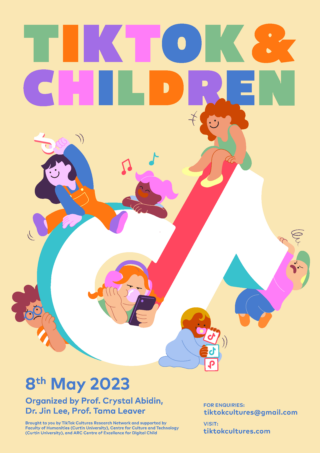
TikTok & Children – symposium recordings now available
Monday 8 May 2023
The TikTok Cultures Research Network held its seventh virtual event, ‘TikTok & Children’ on 8 May 2023. This one-day online symposium was held in collaboration with the Australian Research Council Centre of Excellence for the Digital Child.
In response to the potentials and pitfalls in children’s use of TikTok, this symposium will discuss crucial issues to understanding children’s rights on TikTok and to examine their wellbeing and safety on the platform. The symposium will showcase the emergent research on characteristics, climate, concerns, and chances of children growing up with and on TikTok, and discuss these issues with the industry and TikTok studies scholars.
This event features a conversation with TikTok, and an academic round table with leading ECR scholars on TikTok, moderated by Prof Crystal Abidin.
The full program is available here.
Presenters abstracts and bios are available here.
Please contact TikTok Cultures Research Network with any questions tiktokcultures@gmail.com.
All session recordings are available below by following the link in the titles.
Video 1 – TikTok & Children Opening Remarks and Fireside Chat
0 – 07:12 – Opening from Prof. Crystal Abidin, Curtin University; Founder, TikTok Cultures Research Network; Associate Investigator, ARC Centre of Excellence for the Digital Child. Welcome to Country from Emeritus Prof Simon Forrest.
07:12 – Fireside Chat: A Conversation with TikTok. Claire Gartland, Youth Safety & Wellbeing Global Product Policy Lead, Trust & Safety Global Product Policy Department. Kathryn Grant, Outreach & Partnerships Manager, Research Partnerships Lead TikTok Trust & Safety.
Video 2 – TikTok & Children ECR Roundtable
Aleesha RODRIGUEZ, Queensland University of Technology; Research Fellow, ARC Centre of Excellence for the Digital Child; Founding Member, TikTok Cultures Research Network. Alex TURVY, Tulane University; Global Member, TikTok Cultures Research Network; 2023 Intern at TikTok Cultures Research Network. Xinyu (Andy) ZHAO, Deakin University; Research Fellow, ARC Centre of Excellence for the Digital Child; Founding Member, TikTok Cultures Research Network.
Video 3 – TikTok & Children Session 1 – Children & Care on TikTok
01:27 – 12:00 – Jessica MCLEAN, Macquarie University
12:00 – 21:32 – Jessica RAUCHBERG, McMaster University
21:36 – 32:23 – James SHANAHAN, Columbia University
32:28 – 41:19 – Ganiyat TIJANI-ADENLE, North-West University
41:20 – Q&A
Video 4 – TikTok & Children Session 2 – Children & Parenting on TikTok
01:35 – 13:11 – Sara AL DERHAM, Newcastle University
13:28 – 23:06 – Tess FLETCHER, Telethon Kids Institute
23:45 – 34:07 – Jacob SMITH, University of North Carolina
34:27 – 41:19 – Youssef YAKOUB, Indiana University of Pennsylvania
43:41 – Q&A
Video 5 – TikTok & Children Session 3 – Children & Concerns on TikTok
00:55 – 12:32 – Jessica BALANZATEGUI, Royal Melbourne Institute of Technology
13:06 – 13:30 – Summer GAMBLE, St Mary’s University
13:30 – 33:11 – Megan LUPTON, De Montfort University
23:27 – 43:17 – Emily MUNRO, Telethon Kids Institute; University of Western Australia
43:27 – Q&A
Video 6 – TikTok & Children Session 4 – Children & Play on TikTok
01:05 – 14:09 – Teresa Sofia CASTRO, Universidade Lusófona
14:15 – 26:07 – Madelyn GARCIA, University of the Philippines
26:27 – 33:14 – Emilie OWENS, University of Oslo
33:19 – Q&A
Video 7 – TikTok & Children Session 5 – Children & Regulation on TikTok and closing remarks
00:59 – 11:51 – Catalina GOANTA, Utrecht University
11:54 – 23:08 – Viet Tho LE, Van Lang University
23:13 – 33:39 – Gergely LENDVAI, Pázmány Péter Catholic University
34:04 – 44:33 – Octavia OLMOS-RODRIGUEZ, Aarhus University; Pontificia Universidad Católica de Chile
44:49 – 53:10 – Q&A
53:11 – Closing Remarks
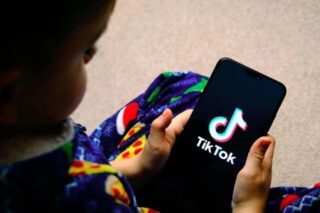
CALL FOR PAPERS – DEADLINE EXTENDED TO 11 APRIL
TikTok and Children Symposium
Monday, 8 May 2023
The popularity of the short-video social media platform TikTok is prominent across the globe with more than 1 billion monthly active users in over 150 countries (Doyle, 2023). Social media culture is being rapidly reshaped around this relatively new platform through the creative lens of the short-video format. Its creative and playful culture has particularly attracted young demographics of social media users, especially children who are below the age of 18 years. According to a US statistics report, 30% of the users are assumed to be children under 19 years old (Doyle, 2023). A recent UK study reveals that 16% of toddlers in the UK are introduced to TikTok by their parents despite the app users having to be 13 or older to sign up to the platform (Waterson, 2022). TikTok is now the most-used app among children,
outranking other social media platforms like YouTube and Instagram (Perez, 2023).
For some young people TikTok serves as a playground where they make connections with their peers (Bresnick, 2019). TikTok’s pedagogical potential is also acknowledged for child education, such as language learning (Karimah et al., 2022), and identity development (Sarwatay et al., 2021). Children’s political voice is also actively formed and amplified on the platform as children take up the platform space and discuss various issues of social injustice, climate change, and electoral politics (Literat & Kligler-Vilenchik, 2021).
However, children’s use of the platform, and how they are represented on TikTok also gives rise to new challenges and concerns. Many parents are concerned about children’s exposure to harmful content and potential risks of children’s health (Collins, 2022). Data insecurity of the app has been widely criticized, which is more serious for especially younger children who are in need of guidance as to how to protect their digital privacy in the highly surveillant environment of social media (Sawers, 2022). Indeed, several countries fined TikTok for mishandling children’s data without parents’ consent, such as the UK (Sawers, 2022) and South Korea (BBC, 2020). Countries like India even banned the platform ostensibly to protect children from potential sexual trafficking and graphic content (Bursztynsky, 2020). Being aware of these concerns, TikTok announced a new feature, “Family Safety Mode” that allows parents to manage their children’s use of TikTok by linking their accounts to their children’s ones (Brown, 2022). Nevertheless, TikTok is still an arena for debate on children’s healthy and sound use of social media (Sawers, 2022).
In response to such potentials and pitfalls in children’s use of TikTok, we will be holding a one-day online Symposium (on Zoom) to discuss crucial issues to understanding children’s rights on TikTok and to examine their wellbeing and safety on the platform. The Symposium will showcase the emergent research on characteristics, climate, concerns, and chances of children growing up with and on TikTok, and discuss these issues with the industry and TikTok studies scholars. We seek to provide a meaningful opportunity to think about balanced and practical approaches to ensure children’s rights and agencies in the popularly emerging
platform and cultures, to make the best use of the platform cultures for child development, while protecting children from possible risks of surveillance and harmful content.
We invite submissions on themes that include, but are not limited to:
● Child influencers on TikTok
● Children and play culture on TikTok
● Children and digital wellbeing on TikTok
● Children and education on TikTok
● Children and identity on TikTok
● Children and creator culture on TikTok
● Children and technologies on TikTok
● Parenting and TikTok
● Child policies and regulations and TikTok
HDRs, ECRs, and scholars in/or from the Global South are strongly encouraged to apply. A selection of papers will also be considered for inclusion in a Special Issue tentatively entitled “TikTok and Children” that will be published in a top-ranked peer-reviewed journal in the field of Media and Communication Studies.
For consideration in this Symposium, please submit abstracts (up to 250 words) on previously unpublished papers and a short bio (up to 100 words) to TikTok Cultures Research Network (tiktokcultures@gmail.com).
Key Dates:
● Extended to 11 April – 03 April 23: Abstracts and biographies due
● 12 April 2023: Notifications of acceptance
● 08 May 2023: TikTok and Children Symposium
We look forward to receiving your submissions! Please contact TikTok Cultures Research Network (tiktokcultures@gmail.com) with any questions about this event.
This Symposium is the seventh event organized by the TikTok Cultures Research Network and its first collaboration with the Australian Research Council of Centre for Excellence of the Digital Child. TCRN is an Asia Pacific-based Network dedicated to understanding and developing qualitative and cultural approaches to studying the impact of TikTok on society, founded by Prof Crystal Abidin and supported by a network of Founding Members in October 2020. This event is supported by the ARC Centre of Excellence for Digital Child, Curtin’s Centre for Culture and Technology (CCAT), and the Faculty of Humanities at Curtin University.
References
BBC. (2020, 15 July). TikTok fined for mishandling child data in South Korea.
https://www.bbc.com/news/technology-53418077
Bresnick, E. (2019). Intensified Play: Cinematic study of TikTok mobile app (4). University of Southern California.
Brown, M. (2022, 28 January). Is TikTok Safe for Kids? Parents.
https://www.parents.com/kids/safety/internet/is-tiktok-safe-for-kids/
Bursztynsky, J. (2020, 29 June). India bans TikTok and dozens of other Chinese apps over security concerns. CNBC.
https://www.cnbc.com/2020/06/29/india-bans-tiktok-and-dozens-of-other-chinese-apps-over-security-concerns.html
Collins, K. (2022, 14 December). TikTok Shows Teens Harmful Content Within Minutes, Study Says. CNET.
https://www.cnet.com/news/social-media/tiktok-shows-teens-harmful-contentwithin-minutes-of-joining-study-says/
Doyle, B. (2023). TikTok Statistics – Updated Jan 2023
https://wallaroomedia.com/blog/social-media/tiktok-statistics/#:~:text=The%20percentage%20of%20U.S.%2Dbased,%2C%2050%2B%20%E2%80%93%207.1%25.
Karimah, L. S., Deporos, S. R. C., Kustiawan, U., & Maningtyas, D. T. (2022). Does TikTok Effective in Stimulating Language Development for Children Aged 5-6? Golden Age: Jurnal Ilmiah Tumbuh Kembang Anak Usia Dini, 7(1), 11-22.
Literat, I., & Kligler-Vilenchik, N. (2021). How popular culture prompts youth collective political expression and cross-cutting political talk on social media: A cross-platform analysis. Social Media+ Society, 7(2), 20563051211008821.
Perez, S. (2023, 8 February). TikTok is crushing YouTube in annual study of kids’ and teens’ app usage. TechCrunch.
https://techcrunch.com/2023/02/07/tiktok-is-crushing-youtube-in-annual-studyof-kids-and-teens-app-usage/
Sarwatay, D., Lee, J., & Kaye, D. B. V. (2023). Exploring children’s TikTok cultures in India: Negotiating access, uses, and experiences under restrictive parental mediation. Media International Australia, 186(1), 48-65.
Sawers, P. (2022, 26 September). TikTok faces $29M fine in UK for ‘failing to protect children’s privacy’. TechCrunch.
https://au.lifestyle.yahoo.com/tiktok-faces-29m-fine-uk-135226977.html?guccounter=1&guce_referrer=aHR0cHM6Ly93d3cuZ29vZ2xlLmNvbS8&guce_referrer_sig=AQAAAJB35MNSiVdSzb0TYuNwZfxrumusY2-lTEF6Ta_gNhdZszjU8OESsI48wLKZT-NqDb0pG-Nqf1cTSr-17lpalF2WPMYTu051Co_e8rQmWTYlcaFOfpZvEcKFdd-wjKQH0aoe7_Z3PTUZNxArTKkfOSkKJN3Sd99ZMX2o_7Pain0a
Waterson, J. (2022, 30 March). TikTok being used by 16% of British toddlers, Ofcom finds. Guardian.
https://www.theguardian.com/technology/2022/mar/29/tiktok-being-used-by-16-of-british-toddlers-ofcom-finds

TikTok & Asian Diaspora Online Roundtable Event
Monday 17 October 2022
With the increasing popularity of the platform, TikTok has been considered a place for people in marginalized communities, like Asian diasporas around the world, to talk about their life struggles, raise their voices against racial discrimination often instigated by situations like COVID-19, and obtain visibility in media culture. This half-day online-only Roundtable will feature three sessions where TikTokers, community and industry professionals, and scholars discuss the past, the present, and the future of Asian diasporas and TikTok cultures.
The full program and further information can be found here.
Event recordings on YouTube
Meaningful conversations about the present and the future of TikTok cultures and Asian diasporas
Panel 1 – Introduction and Academics
TikTok Cultures Research Network in discussion with academics Dr Tara Ross, Dr Earvin Charles B. Cabalquinto and Dr Satveer Kaur-Gill. Moderated by Dr Jin Lee.
Timestamps
0:00 – Introduction and Housekeeping
8:05 – Panel Introduction
10:41 – Discussion
39:55 – Audience Q&A
TikTok Cultures Research Network in discussion with TikTokers Pele, Palak & Molly and Korean Billy. Moderated by Dr Jin Lee.
Timestamps
0:00 – Panel Introduction
2:05 – Discussion
34:35 – Audience Q&A
Panel 3 – Industry and Community
TikTok Cultures Research Network in discussion with people from Industry and Community – May from Gushcloud Thailand, Shikha from Pardesi and Shaun from BordersLess. Moderated by A/Prof Crystal Abidin.
Timestamps
0:00 – Panel Introduction
2:38 – Discussion
34:42 – Audience Q&A
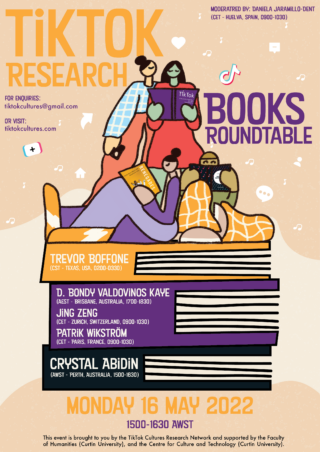
TikTok Cultures Research Network fifth virtual event
The TikTok Cultures Research Network is pleased to announce our fifth virtual event TikTok Books Roundtable on 16 May 2022 featuring the authors of the first three academic books on TikTok.
TikTok has become one of the most widely used short video platforms around the world and a key site of study for students, researchers, and scholars. This event features a moderated discussion with the authors of the first book-length investigations into TikTok. Trevor Boffone author of “Renegades: Digital Dance Cultures from Dubsmash to TikTok” (2021); D. Bondy Valdovinos Kaye, Jing Zeng, and Patrik Wikström authors of “TikTok: Creativity and Culture in Short Video” (2022); and Crystal Abidin author of “TikTok and Youth Cultures” (2023).
This 1.5-hour virtual event will take place via Zoom on 16 May 2022 at 1500-1630 (GMT+8) and will feature a brief introduction of the three books, a moderated panel discussion between the authors, and an audience Q&A. The event will be moderated by Ms Daniela Jaramillo-Dent.
We invite professionals from media industries and social media industries, students and researchers in academia, and members of the general public to attend this event.
The event recording can be viewed here on YouTube.
Timestamps:
Event introduction (A/Prof Crystal Abidin): 0:00:00
Welcome to Country (Prof Simon Forrest): 0:01:32
Network Overview (A/Prof Crystal Abidin): 0:03:45
Panel Introduction (Ms Daniela Jaramillo-Dent): 0:07:45
Book 1 Overview (Dr Trevor Boffone): 0:12:00
Book 2 Overview (Dr D. Bondy Valdovinos Kaye): 0:18:00
Book 3 Overview (A/Prof Crystal Abidin): 0:24:00
Moderated Q&A (whole panel): 0:30:00
Audience Q&A (whole panel): 0:55:10
Event close (Ms Daniela Jaramillo-Dent): 1:19:00
This event was brought to you by the TikTok Cultures Research Network and supported by the Faculty of Humanities (Curtin University) and the Centre for Culture and Technology (Curtin University).
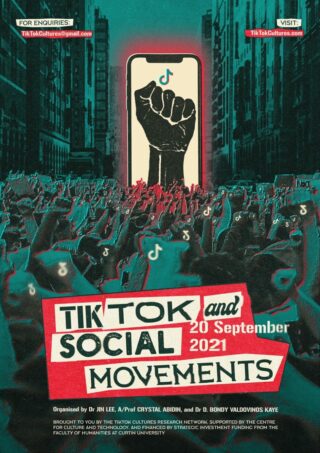
TikTok and Social Movements
half-day symposium, 20 September 2021
Open for Registration more information and registration go to TikTok Cultures website
________________________________________
Call for Papers: TikTok and Social Movements Symposium
Submissions close 6 September 2021
The recent growing popularity of TikTok has transformed the cultures and practices of social movements online worldwide. Despite several concerns towards the app, regarding weak security (Chae, 2020; Dziedzic, 2020), moral panics incited by malicious content on TikTok (Purwaningsih, 2018) and some countries’ (temporary) ban on the platform (e.g. Indonesia, Pakistan, India), TikTok has rapidly grown as the “hottest app of 2020” in the world (Brigham, 2020). Its functionality (e.g. short-video, voiceover, meme template, background music, duet, hashtag) and unique genres (e.g. dance, comedy, social media challenge) have expanded existing social media cultures and enabled users to engage with other users, social issues, and even misinformation and online toxicity with ease and fun.
As part of such cultural moves, TikTok users establish their vernacular cultures and find their meaningful use of the platform by leading or participating in various types of movements for global awareness, social change, and civic politics. This includes Young TikTok users’ climate activism (Hautea et al., 2021); Growing anti-racist movements, such as the continuation of “Black Lives Matter” on TikTok (Janfaza, 2020; Richardson, 2020); and emerging hashtag streams like #StopAsianHate in response to increasing violence against Asians in the pandemic (Hanson, 2021).
The affordances of TikTok provide room for creativity with music and filters powered by AI technologies, which facilitates the formulation of identity politics and cultures. Recent examples include Young Indian women’s lip-syncing to Bollywood songs against the caste system (Subramanian, 2021); LGBTQI+ users’ use of various filters to advocate for diversity (Simpson & Semaan, 2021); Young users’ meme cultures (Zeng & Abidin, 2021) as consciousness building work (Anderson & Keehn, 2020; Literat & Kligler-Vilenchik, 2019); Older generations’ collaboration with younger generations (Hood, 2020). However, social movements on TikTok are not always specifically targeted towards social justice, but may often also advocate for specific beliefs that mirror global politics, such as Anti-vaccine movements and distribution of misinformation (Basch et al., 2021); Far-right movements (Weimann & Masri, 2020).
Focusing on the newly emerging cultures on TikTok, scholars in Media Studies, Communication Studies, Sociology, and Anthropology also have begun to develop “TikTok Studies”, looking for instance at emergent meme cultures on TikTok (Zeng & Abidin, 2021; Zeng et al., 2020; Zulli & Zulli, 2020), TikTokers as new types of internet celebrities (Abidin, 2021), users’ music practices (Kaye et al., 2021), the emergence of new teenage pop culture (De Leyn et al., 2021), online learning on TikTok (Li et al., 2021; Literat, 2021), novel methodologies for TikTok (Schellewald, 2021), and the newly emerging geopolitics around the app (Gray, 2021).
In response to this expansion of scholarship on TikTok and alongside the TikTok Cultures Research Network’s ethos to cultivate diversity and equity in academic scholarship, we will be holding a one-day online Symposium to showcase emergent research on the potentials, promises, pitfalls, and parameters of such social movements on TikTok. The Symposium seeks to provide a meaningful opportunity to reflect on the evolving cultures and practices around the civic and social movements on TikTok, wherein various actors on the platform across the globe advocate for social justice and specific values, develop grassroots networks and resources, and engage with others. We invite submissions on themes that include, but are not limited to:
• Politics, digital circulation, and/or economies of movements on TikTok
• Online activism, campaigns, and protest on TikTok
• Intersections of sexuality, gender, race, ethnicity, and more on TikTok
• Emerging TikTok practices and communities for advocacy
• Far-right, or alt-right movements on TikTok
• Roles and affordances of the platform technologies in mobilizing movements
• Surveillance of TikTok movements
• Consequences and pitfalls of TikTok movements
HDRs, ECRs (up to 5 years post-PhD + career interruptions), and scholars in/or from the Global South are strongly encouraged to apply. A selection of papers will also be considered for inclusion in a Special Issue tentatively entitled “TikTok and Social Movements” that will be published in a top-ranked peer-reviewed journal in the field of Media Studies, Internet Studies, and Communication Studies.
For consideration in this Symposium, please submit abstracts (up to 250 words) on previously unpublished papers and a short bio (up to 100 words) to TikTok Cultures Research Network (tiktokcultures@gmail.com).
Key Dates:
- 06 September 2021 – Abstracts and biographies due
- 08 September 2021 – Notifications of acceptance
- 13 September 2021 – Registration opens for non-presenters
- 20 September 2021 – TikTok and Social Movements Symposium, tentatively 1200–1600hrs, GMT+8
We look forward to receiving your submissions! Please contact TikTok Cultures Research Network (tiktokcultures@gmail.com) with any questions about this event.
This Symposium is the fourth event organized by the TikTok Cultures Research Network, an Asia Pacific-based Network dedicated to understanding and developing qualitative and cultural approaches to studying the impact of TikTok on society, founded by A/Prof Crystal Abidin and supported by a network of Founding Members in October 2020. This event is supported by the Centre for Culture and Technology, and financed by Strategic Investment funding from the Faculty of Humanities at Curtin University.
WACCM-AASRN Professional Development Symposium
A Symposium for the professional development of WA-based HDRs (Hons, MA, PhD), ECRs, and Sessionals will be held on Friday 2 July at Curtin University. This event is jointly organised by WACCM (WA Communication, Culture and Media group) and AASRN (Asian Australian Studies Research Network). WACCM is a network set up by the four main WA universities (with Notre Dame recently joining) to improve networking and develop WA’s research environment. AASRN is a research network for academic and community groups with interests in Asian Australian studies and topics. The symposium will provide opportunities to network, speak to mentors, and sessions will cover topics such as research and methodologies as well as CV planning (pathways and options).
Please follow the link below to register for the Symposium on the Eventbrite registration page. Registration closes 30 June and places are limited. We look forward to seeing you there!
https://www.eventbrite.com.au/e/waccm-aasrn-symposium-2021-registration-159948276601
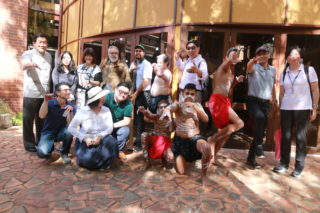
POSTPONED
for more information please contact Dr Huan Wu at huan.wu@curtin.edu.au
Representing the Past, Imagining the Future
U40 China-Australia Summer School and Conference 2020
Call for Papers
5 – 7 February 2020, Curtin University, Perth, Western Australia
Sub-themes:
• Digital cultural tourism,
• Creative technologies and innovation,
• Digital cultural heritage,
• Case studies about internet communication companies.
Organiser: Centre for Culture and Technology (CCAT), School of Media, Creative Arts and Social Inquiry, Curtin University.
Co-sponsors: Tencent Research Centre; China National Center for Culture Studies, Chinese Academy of Social Science (CASS); School of Design, Curtin University; Cultural Development Institute of Yunnan University.
Submissions are invited from Masters and PhD students and Early Career Researchers, carrying out research related to one of the themes of the conference.
- Digital cultural tourism: Virtual and augmented reality, tourism apps and services; Indigenous creative industries.
- Creative technologies and innovation: Smart cities and regions, digital apps and services, accessibility, ethics, and environment.
- Digital cultural heritage: Civilisation, technology, digitalisation of culture, The Silk Roads.
- Case studies: Analysis about the influence of China’s internet communication companies and their products in domestic or global markets.
The three day program provides post-graduate students and emerging scholars from the Asia Pacific area, China and Australia with a valuable opportunity to share ideas with leading experts in the fields of cultural tourism, digital culture and creative industries. Students’ papers will be mentored and developed for publication in (1) a special issue of Cultural Science Journal and (2) an edited book with a leading international English language publisher. There is also the opportunity for any relevant themed, high quality papers to be considered for publication in a special issue of the Journal of China Tourism Research on Chinese outbound tourism. Any papers submitted for publication will be required to go through a review process according to the practice of the journal and there is no guarantee that submissions will be accepted for publication.
First step – applications should include:
• A Curriculum Vitae (CV);
• A 300 to 500 word abstract relating to new and unpublished research. The abstract should include a title, research question(s), a theoretical framework and research methods.
• All application materials should be in English. If you have a CV in Chinese, you can send it to us with a short bio in English.
Once you have been advised that your abstract has been accepted:
We will ask for further submissions about your research. You will then have two options:
(1) A full paper (unpublished).
(2) A Research Proposal (that is, an extended plan for a paper to be co-written with a mentor).
If you choose option 2, please follow this link and fill in the attached template.
Important Dates
Abstract Due: 15 December 2019
Acceptance notification: 22 December 2019
Full paper/Short paper due: 12 January 2020
All the above submissions and summer school enquiries should be directed to Dr Huan Wu, huan.wu@curtin.edu.au
Please note: Accommodation during the event will be shared, as in previous years. Alternatively, attendees are welcome to make their own accommodation arrangements.



